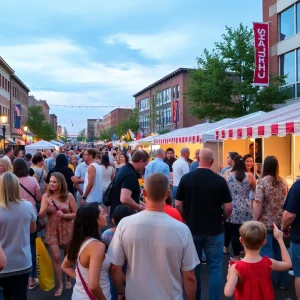Columbia Hosts Remembrance Ceremony for Inmates
Columbia, South Carolina — On the morning of October 11, 2024, a solemn remembrance ceremony took place at the South Carolina Department of Corrections cemetery located near the Broad River prison complex. This service was held to honor the lives of five inmates who had passed away while incarcerated within the state’s prison system.
A chaplain with the S.C. Department of Corrections, Michael Cannon, led the ceremony, which featured the spreading of ashes across the once-used burial grounds. The ceremony exemplified a somber reflection on the lives of these individuals, who had no family to carry forward their memory. Cannon emphasized the importance of marking their passing, stating, “We all had some contact with them. Today, we acknowledge their stories.”
Who, What, Where, When, and Why
The ceremony specifically involved the ashes of five inmates: Willie Lee Miller, Richard E. Blackburn, Alberto Hernandez Basaldua, Jaimie Sabio Obregon, and Sean Michael Donovan. Each had faced unique circumstances leading to their ends within the criminal justice system. This gathering took place in a low-key yet solemn setting, a small field that lacks the adornments one might find in more traditional cemeteries—there are no flowers or shaded trees, just remnants of lives that had played out behind bars.
Burials at this cemetery ceased in 1995, yet the department continues to hold ceremonies to spread ashes for those inmates who die in custody without any family left to claim them. Many inmates who pass away have surviving relatives who claim their remains; however, a portion dies without anyone to carry their final wishes. Cannon articulated the need for recognition, noting that sometimes “family members are the person’s victim,” reflecting on the complex nature of relationships for some individuals.
The Ceremony
During the recent ceremony, chaplains compassionately unloaded black boxes containing the cremated remains of the inmates. This deeply emotional session brought together 16 prison chaplains and staff members, along with a sole reporter witnessing the profound moment. The names of each inmate were read aloud, and prayers were offered, weaving both the Old and New Testaments into the service. Attendees sang hymns, creating a melodic blend of faith and remembrance.
For inmates attending the ceremony, witnessing such events provides a vital connection to the idea of humanity beyond prison walls. Cannon recalled previous ceremonies and the responses from inmates, stating that it brings comfort. He also noted that the presence of a chaplain in times of grief helps many inmates find peace.
Historical Context
The history of burials within the South Carolina Department of Corrections dates back to the late 19th century, where unmarked graves were common. By 1883, the volume of deceased inmates led to the establishment of a potter’s field, yet many remained unnamed until systematic record-keeping began in 1915. A new burial site was then created for unclaimed remains, though it is now largely ceremonial.
Since burials stopped, these ceremonies have transitioned to honor those left behind in an evocative yet quiet fashion. The most recent ceremony held in October was the first since September 2023, indicating a routine but necessary practice to recognize the lives lost within the system.
The Final Farewell
While the circumstances of each inmate’s life and death vary, their stories are enveloped in layers of complexity, prompting reflections on redemption, loss, and the journey through incarceration. The cremated ashes scattered across the cold earth serve as a final farewell for the departed, echoing the sentiments of their past lives and the recognition of their humanity.
As the ceremony concluded, Cannon shared a profound truth about the nature of many inmates: finding peace and redemption is a journey that often unfolds within the walls of the prison itself. The chaplains present at the ceremony continue to serve as bridges, aiding in the healing of broken lives, marked not just by their crimes but by their humanity as well.



























